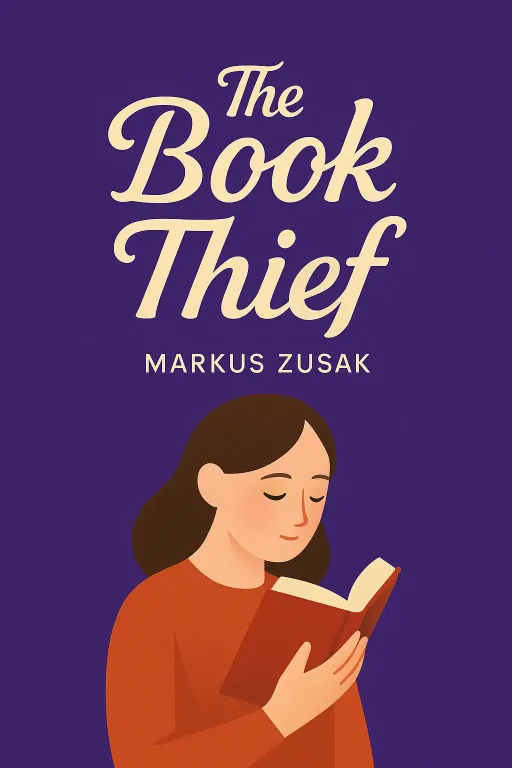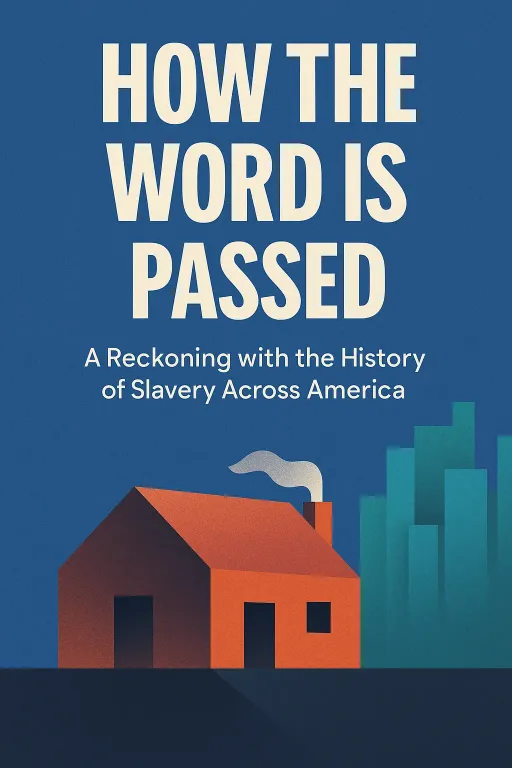
The Book Thief
11 minIntroduction
Narrator: Imagine a being who has seen humanity at its absolute worst—in gas chambers, on battlefields, and in the quiet despair of sickbeds. This being is Death, and after millennia of work, he believes he has seen it all. Yet, one story, the story of a single girl in Nazi Germany, proves to be an exception. It is a small tale that he picks up from the rubble of a bombed-out street, a story he has reread countless times, one that continues to baffle and haunt him. He finds himself perplexed by the human race, by its capacity for both breathtaking ugliness and moments of staggering beauty.
This is the world of The Book Thief by Markus Zusak, a story narrated by Death himself. It is the account of Liesel Meminger, a young foster girl who discovers the profound power of words to both destroy and to save, finding solace and rebellion in the books she steals amidst the chaos of war.
Words as Both Poison and Salvation
Key Insight 1
Narrator: The story of Liesel Meminger is fundamentally a story about the power of words. This journey begins with her first act of thievery, which occurs not out of malice, but out of grief. In January 1939, on a snow-covered railway line, Liesel’s younger brother, Werner, dies in her arms. At his makeshift burial, a young gravedigger apprentice accidentally drops a small black book in the snow. Liesel, unable to read, picks it up. The book, The Grave Digger's Handbook, becomes her last tangible link to her brother and her mother. This single object, a manual for burying the dead, ironically marks the beginning of her new life. It is the first of many books she will steal, each one shaping her understanding of the world. In Nazi Germany, words are weaponized. Adolf Hitler, the Führer, uses them to build a nation of "farmed thoughts," hypnotizing millions with his hateful rhetoric. Yet, for Liesel, words become a refuge. They are the foundation of her bond with her foster father, Hans Hubermann, who patiently teaches her to read using sandpaper and paint in their basement. Words are what connect her to Max Vandenburg, the Jewish man they hide, as they share stories and nightmares. Ultimately, it is Liesel’s own words, written in a blank book in that same basement, that save her life.
Finding Family in the Shadow of the Führer
Key Insight 2
Narrator: When Liesel arrives on Himmel Street—a name that ironically translates to "Heaven Street"—she is a traumatized and distrustful child. She is introduced to her new foster parents: Rosa Hubermann, a woman who shows love through a barrage of insults and a strict, iron-fisted demeanor, and Hans Hubermann, a quiet, gentle man with "eyes made of kindness, and silver." While Rosa’s harshness is a constant, it is Hans who patiently coaxes Liesel out of the car on her first day. It is Hans who sits with her through her nightmares, not leaving her side, an act of trust and love that Liesel instinctively understands. He teaches her to roll his cigarettes, a small ritual that builds an unbreakable bond. This unconventional family, living under the constant threat of the Nazi regime, becomes Liesel’s anchor. Rosa, despite her gruff exterior, proves to be a "good woman for a crisis," her strength becoming a pillar for the family when they decide to hide a Jewish man. The Hubermanns provide Liesel with a home where love is not always spoken softly but is demonstrated through profound acts of sacrifice and protection.
The Perilous Friendship with a Jewish Fist Fighter
Key Insight 3
Narrator: The Hubermanns' quiet life is upended by the arrival of Max Vandenburg, the son of the Jewish man who saved Hans's life in World War I. Fulfilling a promise made decades earlier, Hans agrees to hide Max, an act of immense courage that puts the entire family in mortal danger. Max, a "struggler" and a fist fighter, arrives weak and terrified, carrying a copy of Hitler's Mein Kampf—a book that ironically contains his key and map to safety. He is hidden in the cold basement, where he and Liesel slowly form a powerful bond. They connect over their shared nightmares—Liesel’s of her brother’s death, Max’s of leaving his family behind. Max, using pages torn from Mein Kampf and painted over with white house paint, creates a book for Liesel called The Standover Man. It tells the story of their friendship, recasting the hateful words of the Führer into a narrative of hope and human connection. This gift solidifies a friendship that defines them both, a relationship built on shared secrets and the quiet gathering of words in the dark.
Rebellion and Resilience in a World of Rules
Key Insight 4
Narrator: In a world demanding absolute conformity, small acts of rebellion become profound statements of humanity. Liesel’s primary form of rebellion is stealing books, first from a Nazi book burning and later from the mayor’s library. These acts are not just about acquiring stories but about reclaiming knowledge and defying a regime that seeks to control thought. Her best friend, Rudy Steiner, engages in his own acts of defiance. The most famous is the "Jesse Owens Incident," where he covers himself in charcoal and runs the 100-meter dash at a local field, idolizing the black American athlete who humiliated Hitler’s notions of Aryan supremacy at the 1936 Olympics. Rudy’s loyalty to Liesel is unwavering. When a bully named Viktor Chemmel throws Liesel’s book, The Whistler, into the freezing Amper River, Rudy doesn't hesitate. He wades into the icy water to retrieve it, a selfless act for which he only asks for a kiss—a kiss he never receives until it is too late. These acts of thievery and defiance are the children's way of fighting back, of carving out their own identities in a world trying to erase them.
The Inescapable Brutality of War
Key Insight 5
Narrator: As the war intensifies, its brutality becomes impossible to ignore. The illusion of safety on Himmel Street is shattered by the parade of Jewish prisoners marched through Molching on their way to the Dachau concentration camp. Witnessing their profound suffering, Hans Hubermann impulsively gives a piece of bread to a starving old man, an act of compassion that earns him a public whipping and a conscription notice. This single act of kindness forces Max to flee the basement and sends Hans to a dangerous LSE unit, a crew that cleans up after air raids. The war’s toll is also seen in the return of Michael Holtzapfel from Stalingrad, a young man so haunted by guilt for surviving when his brother died that he ultimately takes his own life. These events demonstrate that in this war, no one is safe, and even the smallest acts of humanity can come with devastating consequences.
Survival Through Storytelling
Key Insight 6
Narrator: After being whipped for trying to walk with Max during another Jewish parade, Liesel is consumed by a hatred for words, seeing them as the tools the Führer used to create so much suffering. In a fit of rage, she tears apart a book in the mayor's wife's library. In response, Ilsa Hermann gives Liesel a gift: a blank book, encouraging her not to punish herself but to write her own story. This act of forgiveness and empowerment is a turning point. Liesel retreats to the basement and begins to write the story of her life, titling it The Book Thief. It is this very act of writing that saves her. One night, as she is in the basement putting the final touches on her manuscript, the sirens fail to sound. Bombs fall on Himmel Street, killing everyone she loves—Hans, Rosa, and Rudy. Liesel is pulled from the rubble, alive only because she was surrounded by her own words. Her story, the one she wrote, is the one Death picks up and keeps, a testament to the idea that stories are a way to survive, to make sense of the incomprehensible, and to prove that a human life is worth it.
Conclusion
Narrator: The single most important takeaway from The Book Thief is its profound exploration of human duality. Markus Zusak presents a world where the greatest acts of cruelty exist alongside the most stunning displays of love. It is a world where the same tool—words—can be used by a dictator to incite hatred and by a young girl to soothe the fears of her neighbors in a bomb shelter. The book shows that humanity is not one thing or the other; it is both ugly and glorious, damning and brilliant, all at once.
Ultimately, the story challenges us to consider the weight of our own actions and words. In a world that often feels overwhelming, what small acts of kindness can we perform? How can we use our words not to build walls, but to build bridges? As Death himself concludes after telling Liesel’s story, the one truth that remains, the one that haunts him to this day, is simply this: "I am haunted by humans."









